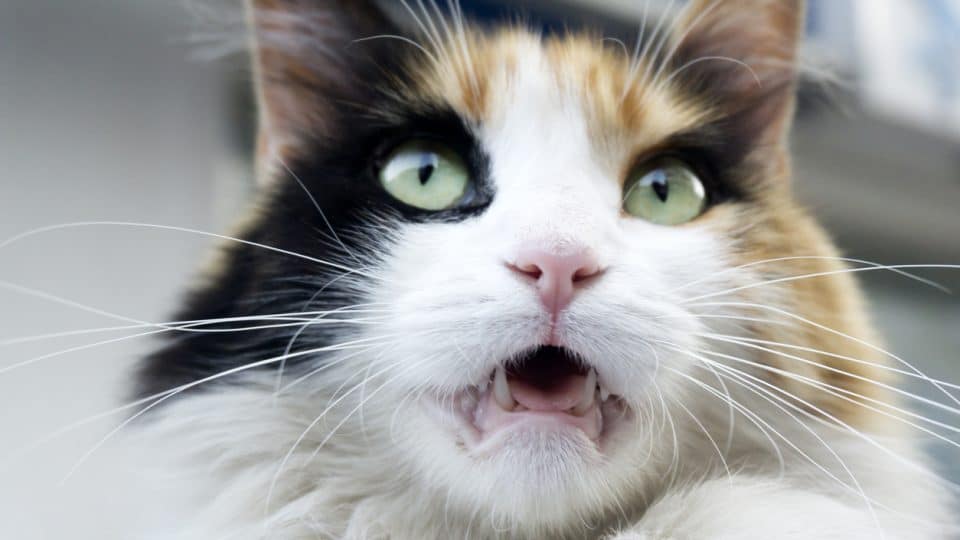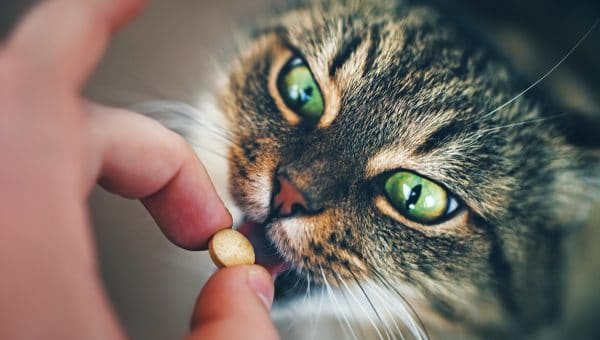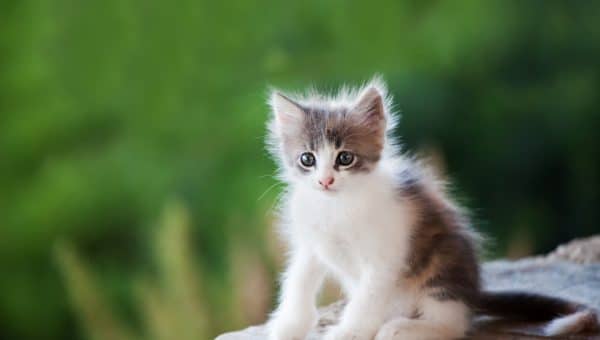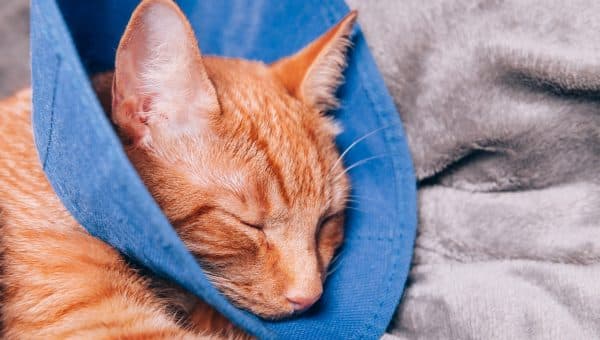Cats enjoy exploring the world around them, and one important method of exploring is through scent. Smell is so important that cats have a special organ inside their mouths that helps to further investigate interesting smells. Once in a while, your cat will come across a smell they downright hate. They might squint, back away, or just up and leave the stinky space. Some of the most common smells cats hate include citrus, vinegar, peppermint, pine, onions, or spicy food.
The dislike for certain smells might be rooted in survival, says Dr. Rebecca Greenstein, Veterinary Medical Advisor for Rover and Chief Veterinarian at Kleinburg Veterinary Hospital. Or it might be because their little noses have 40 times more olfactory receptors than us, easily making smells overwhelming.
What smells do cats hate? We have the list—and some might surprise you. But as we cat lovers know, no two cats are quite alike. So, don’t be shocked if your cat doesn’t turn their nose up at some of the most hated cat smells.
11 Smells Cats Hate & Why
Cats use their powerful sense of smell to learn about the environment around them. With a single sniff, your curious feline can detect prey, the neighborhood tomcat, or her favorite snack. “And sometimes,” says Dr. Rebecca Greenstein, “they can detect threats or toxins.”
“Cats have a general framework of smells they like and dislike, but their system isn’t foolproof,” Dr. Greenstein says. Unfortunately, many cats find the highly toxic lily as delightful smelling as we do.
Other smells aren’t toxic but are disliked enough to keep your cat far away from them. “Clever pet parents can harness the power of certain scents to deter kitties from certain areas of the house, like the kitchen counter or living room drapes,” Dr. Greenstein says.
These are the most likely smells to cause your cat to make a stink face.
Vinegar, soap, and other household cleaners
Eye-watering vinegar-based smells are disliked by cats—as are other strong-smelling household cleaners, like soap and bleach. Because vinegar is non-toxic, it’s a go-to for use as a cat-repellant and pet-safe cleaner.
Essential oil scents
Your cat might hate the smell of some essential oils, and for a good reason. Essential oils are super-concentrated extracts from plants and are different than manufactured fragrances. Eucalyptus, tea tree oil, and peppermint, among others, are off-putting to cats.
Citrus
This fresh scent of citrus signals danger to curious felines. If she ever gets close enough to eat the peel of an orange, lemon, lime, or another citrus (not likely) your cat might experience vomiting and diarrhea. Because they dislike the smell (and bitter taste), scattering peels in gardens or leaving them on the countertop can be a cat deterrent.
Bananas
The peels of bananas are especially pungent smelling and bitter-tasting—and cats are not a fan. As the fruit ripens, a chemical compound called isoamyl acetate forms causing the extra fruity smell. Your cat’s nose might know this chemical compound is likely to cause an upset stomach.
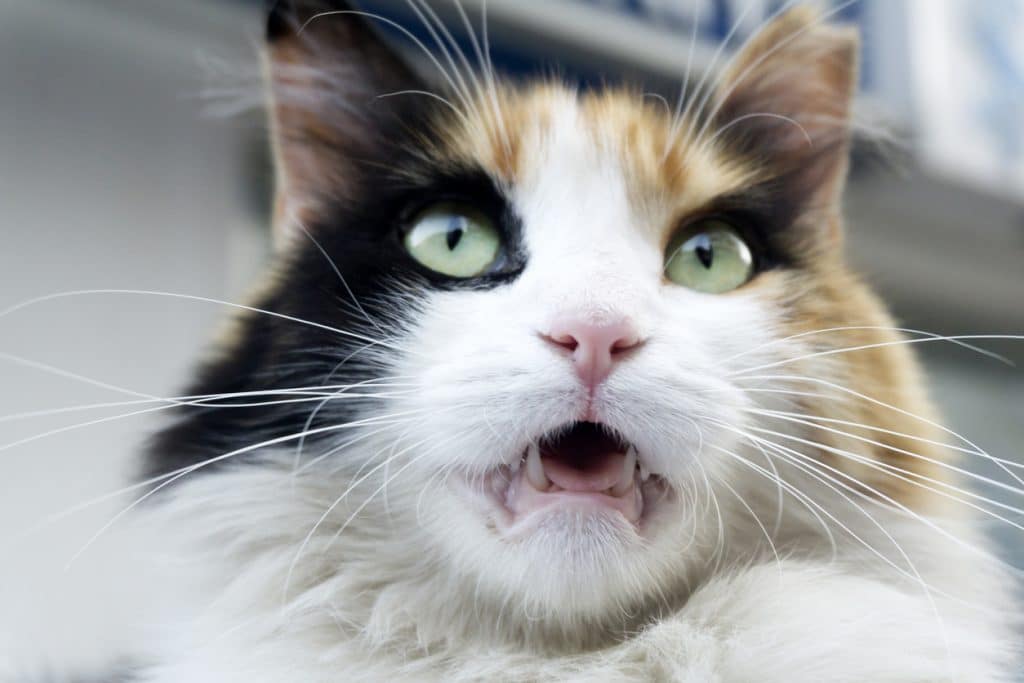
iStock/123ducu
Mustard and spicy food
If you like spicy foods, you can thank a compound called capsaicin for the kick. Your cat is also familiar with its fiery scent and registers “danger!” at first sniff.
Pine and cedar
While a delightful smell to most humans, pine and cedar scents are not widely liked by felines. Perhaps due to the tummy-upsetting tree oils, the dislike of the smell is a particularly good thing if you enjoy having a Christmas tree and cat during the holiday season.
Peppermint
If your cat dislikes the smell of peppermint, they’ve again hit the toxicity meter on the nose. When ingested, peppermint and some of its relatives (not including catnip) can cause vomiting, diarrhea, and nausea.
Tomatoes and onions
I’m with my cat on this one—no one, cats included, enjoys the eye-watering effects of onions. As for tomatoes, your cat might be sniffing out the fact that tomato plants and their unripe fruit are toxic to furry friends.
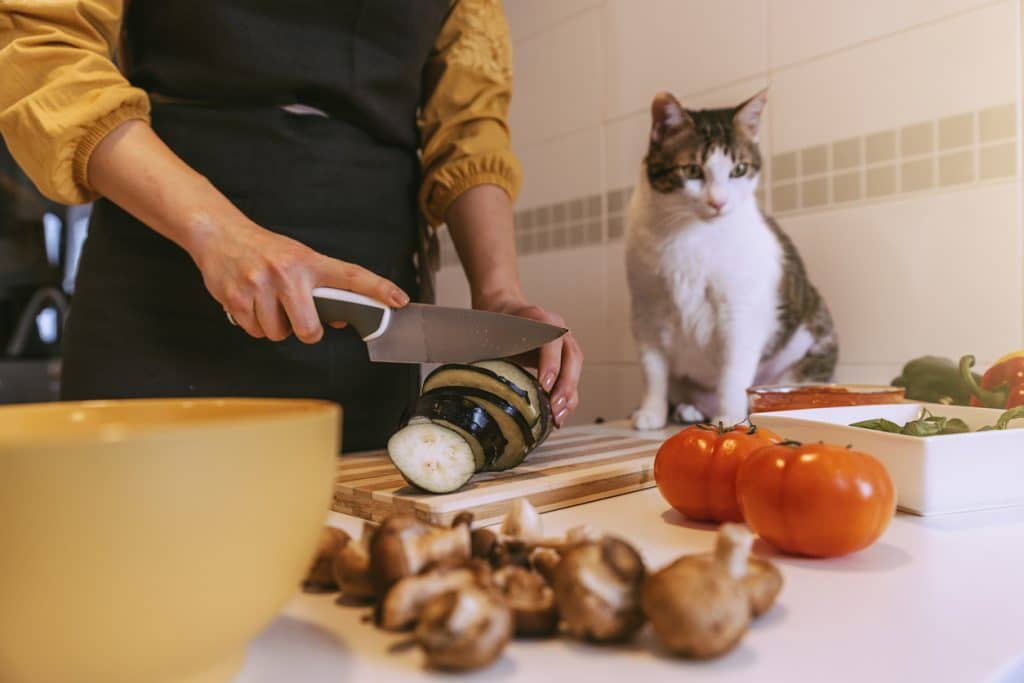
iStock/santypan
Ground coffee
Your cat probably doesn’t enjoy the smell of your morning coffee ritual as much as you do, and that’s a good thing. Caffeine, in the form of brewed coffee, the grounds, or beans, can cause toxicity poisoning in cats and dogs. For this reason, it’s not recommended to sprinkle coffee in your yard or garden as a cat deterrent.
Dirty litter box
You’re not the only one that finds a dirty litter box offensive to the nose, Dr. Greenstein says. If it gets too sticky, your cat might choose to avoid it altogether and find another not-so-suitable location to do their business.
Other cats or pets
“Cats can use their sense of smell to identify whether something is familiar or not and identify who is part of their family. They use olfactory signals to communicate with other cats, and you will see them rubbing scent glands on objects and other cats—or humans,” explains Mikkel Delgado a cat behavior consultant and postdoctoral fellow at the School of Veterinary Medicine at the University of California, Davis. Smelling an unfamiliar pet on their human or in their space signals “intruder!”
How Can I Use Smells To Deter My Cat?
Cat parents have tried it all when it comes to deterring our curious felines from unwanted behavior, including using smells cats hate. What smells do cats stay away from? Here are a few true-and-tried DIY cat deterrents:
- Rubbing lemons on your couch to stop scratching.
- Stocking your fruit bowl with ripening bananas to discourage a counter-jumping feline.
- Scattering citrus peels around your yard to keep the tomcat from roaming about.
- Cleaning counters and other cat-free surfaces with white vinegar.
Is vinegar and other smells a good cat repellant? Sure, using “bad” smells can deter cats from going places you’d rather them not go. Commercial cat deterrents have even bottled up the “worst” smells for easy use. There’s just one problem with this approach, Delgado says.
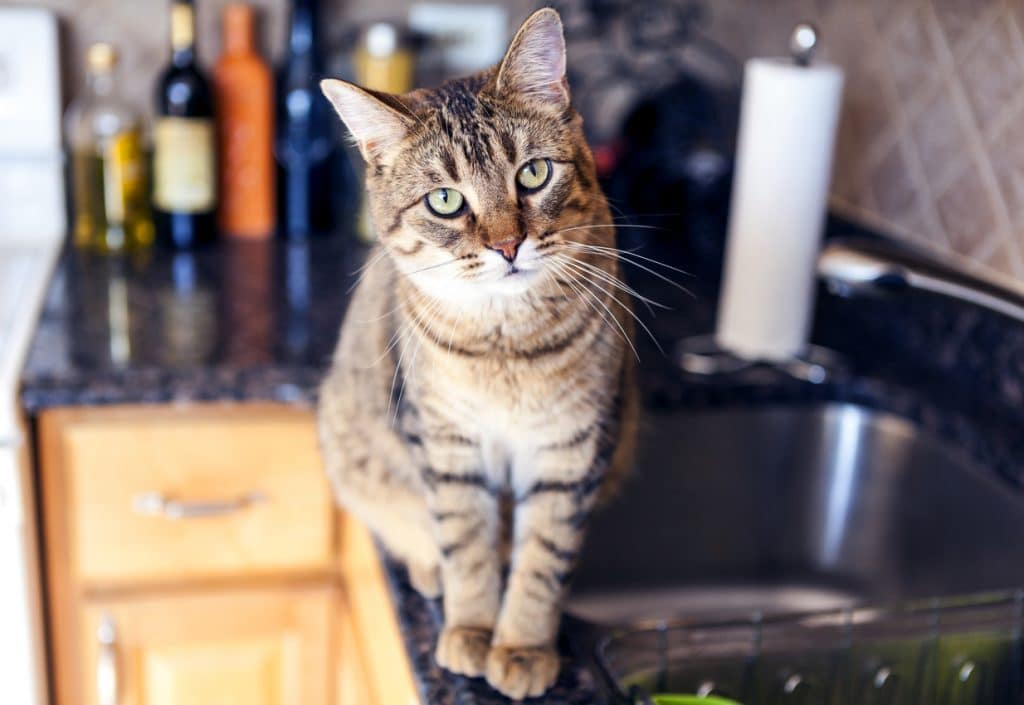
iStock/Maksymowicz
“Smells travel. They can move away from the intended target and now your whole room smells unpleasant to your cat,” she explains. But that doesn’t mean all hope is lost to stop your cat from jumping on the counter.
How can I help my cat behave better?
“It’s much more effective to try to understand why your cat is engaging in a behavior that you don’t like,” she says. Focusing on the five pillars of a healthy feline environment can help narrow down why your cat is doing a behavior and how to provide an environment that discourages the unwanted behavior:
- Provide your cat with a safe place to call their own
- Provide multiple must-have resources like litter boxes, food and water bowls, and scratching and sleeping areas
- Offer opportunities for play, scratching, and enrichment
- Provide lots of love and positive human interactions
- Control odors that impact a cat’s sensitive sense of smell
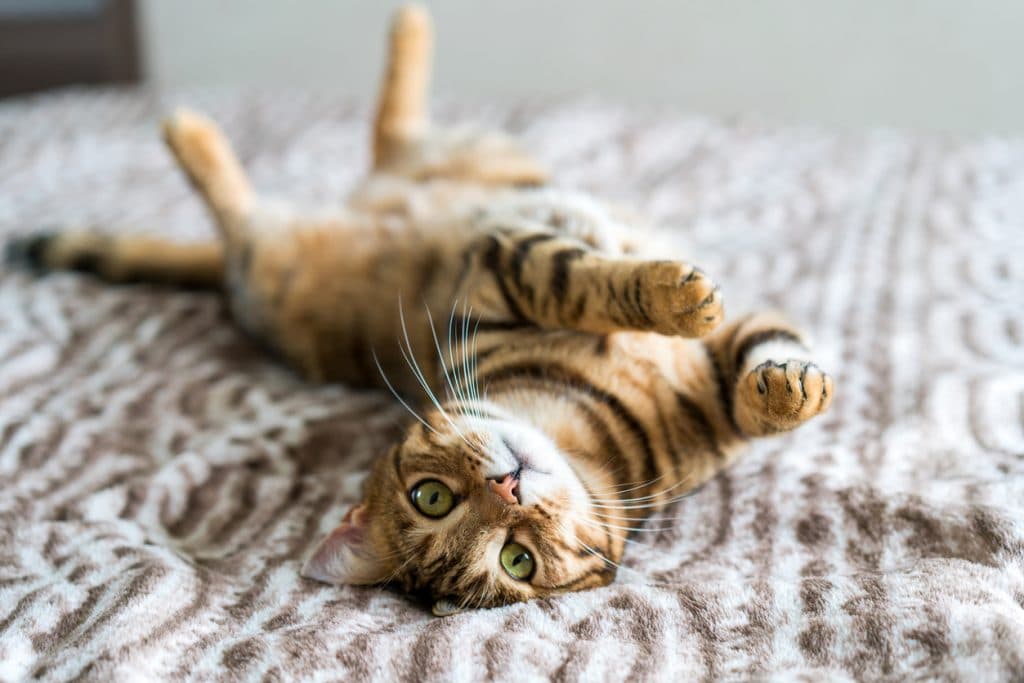
iStock/Ingus Kruklitis
Should I Avoid Putting Perfume On Around My Cat?
While we love our go-to perfumes, our cats are sensitive to them. Experts say to be aware of your cat when you spray yourself with your favorite perfume. Because a cat’s nose is much more sensitive than ours, the scent can be downright overwhelming. Not to mention secondary skin irritation on top of these respiratory symptoms:
- Coughing
- Wheezing
- Drooling
- Sneezing
- Nasal discharge
- Watery eyes
- Labored breathing
Takeaway About Smells Cats Hate
It’s fun and stimulating for you and your cat to discover different smells. If she opens her mouth and makes a grossed-out face—she’s super curious. If she squints, backs away, or even swats at the object, you’ll know you have something stinky in your hand. It might surprise you to learn what your cat’s nose knows that you didn’t. After all, many likes and dislikes come from her catty instincts.
Filling your house with the smells they love like catnip, cat thyme, basil, and non-toxic flowers can all provide stimulation, reduce stress, and create an overall happier home. It doesn’t mean you need to toss your beloved coffee or ditch your favorite lemon cleaner—but your cat might appreciate you airing out those scents with an open window.
Whatever scents your unique feline finds tantalizing or not, we can all be sure of one thing—a cat’s favorite scent is the smell of their favorite human.
